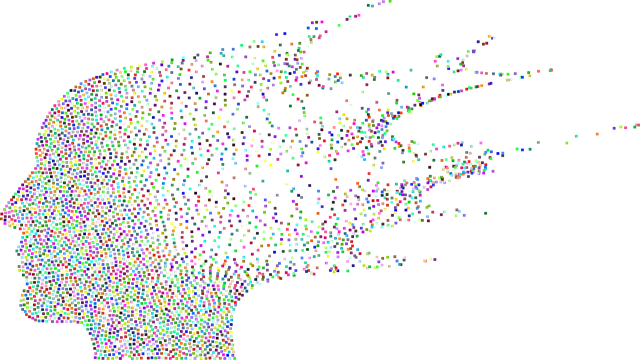Lakewood Neuro Disorders Therapy offers personalized, evidence-based interventions for anxiety, depression, and PTSD, focusing on cognitive-behavioral therapy (CBT), mindfulness practices, and cultural sensitivity. Their Risk Management Planning guide includes stress management techniques, empowering clients to regulate emotions through CBT, and promoting holistic well-being with lifestyle adjustments like exercise and balanced diets. Mindfulness and relaxation strategies, such as meditation, deep breathing, and yoga, enhance emotional resilience for both clients and mental health professionals, fostering a culture of balance and harmony within the community.
Mood disorders affect millions, impacting daily life and overall well-being. This article explores effective strategies for regulating mood, from understanding common symptoms and diagnoses to leveraging therapy, specifically Lakewood Neuro Disorders Therapy. We delve into evidence-based approaches like cognitive behavioral techniques, lifestyle adjustments promoting emotional health, and mindfulness practices for a balanced, fulfilling life. Discover practical steps to manage and enhance your emotional state.
- Understanding Mood Disorders: Symptoms and Diagnoses
- The Role of Therapy in Lakewood Neuro Disorders
- Cognitive Behavioral Techniques for Mood Regulation
- Lifestyle Adjustments for Enhancing Emotional Well-being
- Mindfulness and Relaxation Strategies for Daily Practice
Understanding Mood Disorders: Symptoms and Diagnoses

Mood disorders are conditions that significantly impact an individual’s emotional state and overall well-being. They are characterized by persistent feelings of sadness, happiness, or irritability that interfere with daily functioning. Symptoms can vary widely, but common signs include changes in appetite and sleep patterns, difficulty concentrating, feelings of hopelessness, and intense mood swings. Diagnosing these disorders involves a comprehensive evaluation by mental health professionals who use criteria outlined in diagnostic manuals like the DSM-5 (Diagnostic and Statistical Manual of Mental Disorders).
At Lakewood Neuro Disorders Therapy, we recognize the impact of mood disorders on individuals’ lives. Effective management often involves a combination of therapeutic approaches tailored to the specific needs of each patient. This may include cognitive-behavioral therapy (CBT), mindfulness practices, medication management, and risk mitigation strategies outlined in a comprehensive Risk Management Planning for Mental Health Professionals. Additionally, incorporating Stress Management techniques through the Mental Wellness Podcast Series Production can be beneficial in promoting mental resilience and overall emotional well-being.
The Role of Therapy in Lakewood Neuro Disorders

In the context of Lakewood Neuro Disorders Therapy, therapeutic interventions play a pivotal role in managing and mitigating symptoms associated with various neuro disorders. This form of therapy offers individuals affected by conditions like anxiety, depression, or PTSD specific tools and strategies to regulate their moods effectively. Through personalized treatment plans, therapists help patients understand and navigate their emotional responses, fostering improved mental wellness. The therapeutic process often involves a combination of evidence-based techniques tailored to meet the unique needs of each client.
Cultural sensitivity in mental healthcare practice is an integral aspect of Lakewood Neuro Disorders Therapy. Recognizing and respecting diverse cultural backgrounds ensures that treatment approaches are inclusive and effective. Mental health awareness initiatives, coupled with the development of mental wellness coaching programs, further contribute to comprehensive care. These programs not only empower individuals but also promote self-regulation skills, enabling them to maintain emotional balance and enhance their overall quality of life.
Cognitive Behavioral Techniques for Mood Regulation

Cognitive Behavioral Techniques (CBT) offer a powerful set of tools for individuals looking to regulate their moods effectively. This therapeutic approach focuses on identifying and modifying negative thought patterns and behaviors that contribute to emotional distress. By challenging distorted thinking and replacing it with more realistic, balanced perspectives, CBT enables people to manage their emotions and improve overall well-being.
At Lakewood Neuro Disorders Therapy, our experts employ these cognitive behavioral strategies, often paired with trauma support services and empathy building techniques, to help clients navigate stress management challenges. Through structured discussions and practical exercises, individuals learn to recognize triggers, develop coping mechanisms, and enhance their emotional resilience. This personalized approach equips people with the skills needed to confront and overcome mood disorders, fostering a sense of control and empowerment in their journey towards emotional health.
Lifestyle Adjustments for Enhancing Emotional Well-being

Maintaining emotional well-being is a multifaceted endeavor, and lifestyle adjustments play a pivotal role in effective mood regulation. At Lakewood Neuro Disorders Therapy, we emphasize holistic approaches to mental health awareness, recognizing that physical and psychological elements are intricately linked. Simple yet powerful changes like regular exercise, for instance, have been shown to significantly impact stress management, boosting mood and overall resilience. A balanced diet, sufficient sleep, and mindfulness practices also contribute to a stable emotional landscape, helping individuals navigate life’s challenges with greater equanimity.
By integrating these lifestyle adjustments, individuals can foster positive mental illness stigma reduction efforts, promoting self-acceptance and resilience against societal misconceptions. The goal is not just to manage symptoms but to cultivate a deep sense of inner peace and emotional intelligence that enhances overall quality of life. Through these means, Lakewood Neuro Disorders Therapy empowers its clients to take charge of their emotional well-being, fostering a symphony of balance and harmony within.
Mindfulness and Relaxation Strategies for Daily Practice

Incorporating mindfulness and relaxation strategies into daily routines can significantly aid in mood regulation, as recommended by Lakewood Neuro Disorders Therapy experts. Practices such as meditation, deep breathing exercises, and yoga create a mental space that fosters calmness and awareness of present moments, helping to mitigate stress and anxiety. These techniques are not just short-term remedies; they cultivate long-term resilience against emotional volatility.
For mental health professionals, integrating these strategies into their Risk Management Planning can enhance self-care and improve patient outcomes. Techniques like progressive muscle relaxation and mindfulness meditation not only benefit the practitioner’s well-being but also equip them with effective tools to assist clients in managing conflicts and improving self-esteem. This holistic approach ensures a more balanced and sustainable practice, ultimately enriching both professional and personal lives.
Mood regulation is a multifaceted process that can greatly enhance one’s quality of life. By understanding the symptoms and seeking appropriate diagnoses, individuals with mood disorders can benefit from effective therapies, such as those offered for Lakewood Neuro Disorders. Incorporating cognitive behavioral techniques, lifestyle adjustments, mindfulness, and relaxation strategies allows for holistic emotional well-being. These integrated approaches empower folks to navigate their emotional landscapes more skillfully, fostering resilience and a deeper sense of calm.














